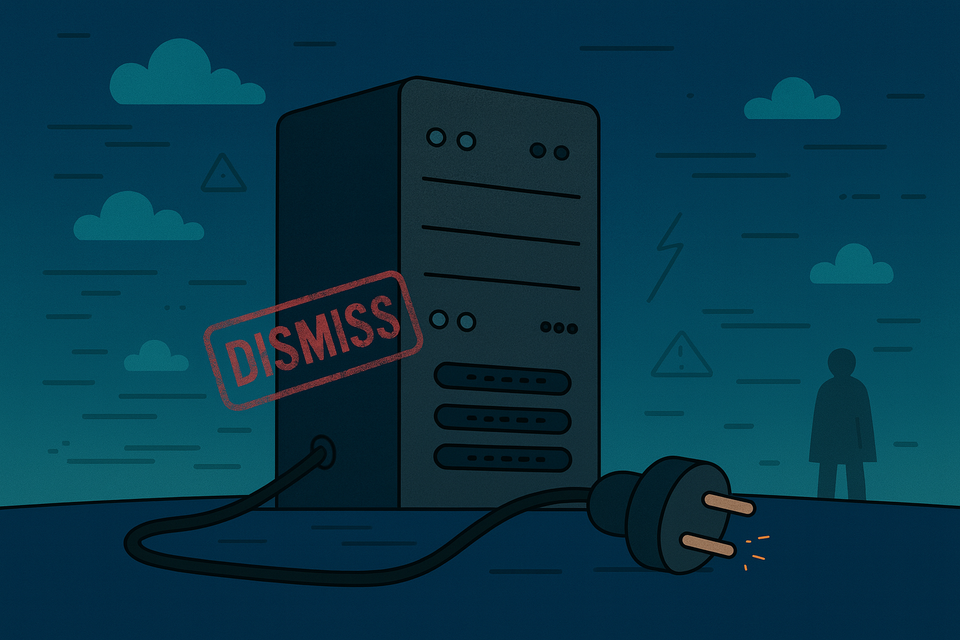The motion to dismiss—a win for WP Engine

This past Friday, September 12, Judge Araceli Martínez-Olguín issued a motion to dismiss in WP Engine v Automattic and the case… soldiers on. You will read other takes, about the aspects of the case being dismissed (they were) and how this was a major win for Automattic / Matt Mullenweg (ehh), but the key takeaway is that the case continues, with the majority moving on to the next stage.
Let’s dig in…
Summary
To start, let’s break down a quick summary of the judge’s order. WP Engine made 20 claims in their First Amended Complaint (FAC), but Automattic did not pursue dismissal of all twenty. Specifically, four of the twenty claims were unopposed by Automattic—that means, barring a settlement, these claims will proceed to trial. Thus, the judge only ruled on 16 claims. Here is a complete table of each claim and whether it will continue:
| Claim | Status |
|---|---|
| 1: Intentional Interference with Contractual Relations | Moving forward |
| 2: Intentional Interference with Prospective Economic Relations | Moving forward |
| 3: Computer Fraud and Abuse Act, 18 U.S.C. § 1030(a)(7) | Dismissed, but WP Engine can re-assert this claim |
| 4: Attempted Extortion | Dismissed |
| 5: Unfair Competition, Cal. Bus. Prof. Code § 17200, et seq. | Moving forward |
| 6: Promissory Estoppel | Dismissed in part, moving forward in part |
| 7: Declaratory Judgment of Non-Infringement | Moving forward (was not opposed) |
| 8: Declaratory Judgment of Non-Dilution | Moving forward (was not opposed) |
| 9: Libel | Moving forward |
| 10: Trade Libel | Moving forward |
| 11: Slander | Moving forward |
| 12: Monopolization, Sherman Act, 15 U.S.C. § 2 | Dismissed, but WP Engine can re-assert this claim |
| 13: Attempted Monopolization, Sherman Act, 15 U.S.C. § 2 | Dismissed, but WP Engine can re-assert this claim |
| 14: Illegal Tying, Sherman Act, 15 U.S.C. § 1 | Dismissed, but WP Engine can re-assert this claim |
| 15: Illegal Tying, California Cartwright Act, Cal. Bus. & Prof. Code § 16700 et seq. | Dismissed, but WP Engine can re-assert this claim |
| 16: Declaratory Judgment of Trademark Misuse | Dismissed, without prejudice; WP Engine may assert this later in the case |
| 17: Lanham Act Unfair Competition, 15 U.S.C. § 1125(a)(1) | Moving forward (was not opposed) |
| 18: Lanham Act False Advertising 15 U.S.C. § 1125(a)(1)(B) | Moving forward (was not opposed) |
| 19: Computer Fraud and Abuse Act, 18 U.S.C. § 1030(a)(5) | Moving forward |
| 20: Unjust Enrichment | Moving forward |
Automattic also sought to sever some claims, arguing that they only applied to Mullenweg personally and not to Automattic as a company. The judge was not persuaded. (More on this below.)
As you can see above, 13 of 20 claims are moving forward, and WP Engine can reassert 5 of the dismissed claims now, and 1 of the dismissed claims later in the case (more on this below). Put another way, only one single claim was completely dismissed by the court, with no option for WP Engine to re-assert the claim.
While some have called this a “win” for Automattic and Mullenweg, that is provably false. We can expect WP Engine to “cure the deficiencies” within their complaint and file a “Second Amended Complaint”, likely reasserting all of claims the judge is allowing them to re-assert. It‘s possible, perhaps likely, that some claims will not make it to trial, but the vast majority will.
One thing that’s very important to keep in mind is that lawyers are taught to plead as many claims as possible, knowing that some will not make it to trial, getting dismissed for varying reasons. That is what WP Engine’s lawyers did here—their original complaint had just 11 claims, which they expanded within their First Amended Complaint to 20 claims. If, in the end, the judge narrows the case to just 13 claims—and, again, I think it’s likely that WP Engine will re-assert claims and more than 13 will make it to trial—WP Engine is moving forward with more claims than their original filing!
With at least 13 claims moving to trial and just 1 claim completely dismissed, this ruling is a significant win for WP Engine and their lawyers.
That said, let’s look at the judge’s rulings individually, which I’ll cover in the same order she did.